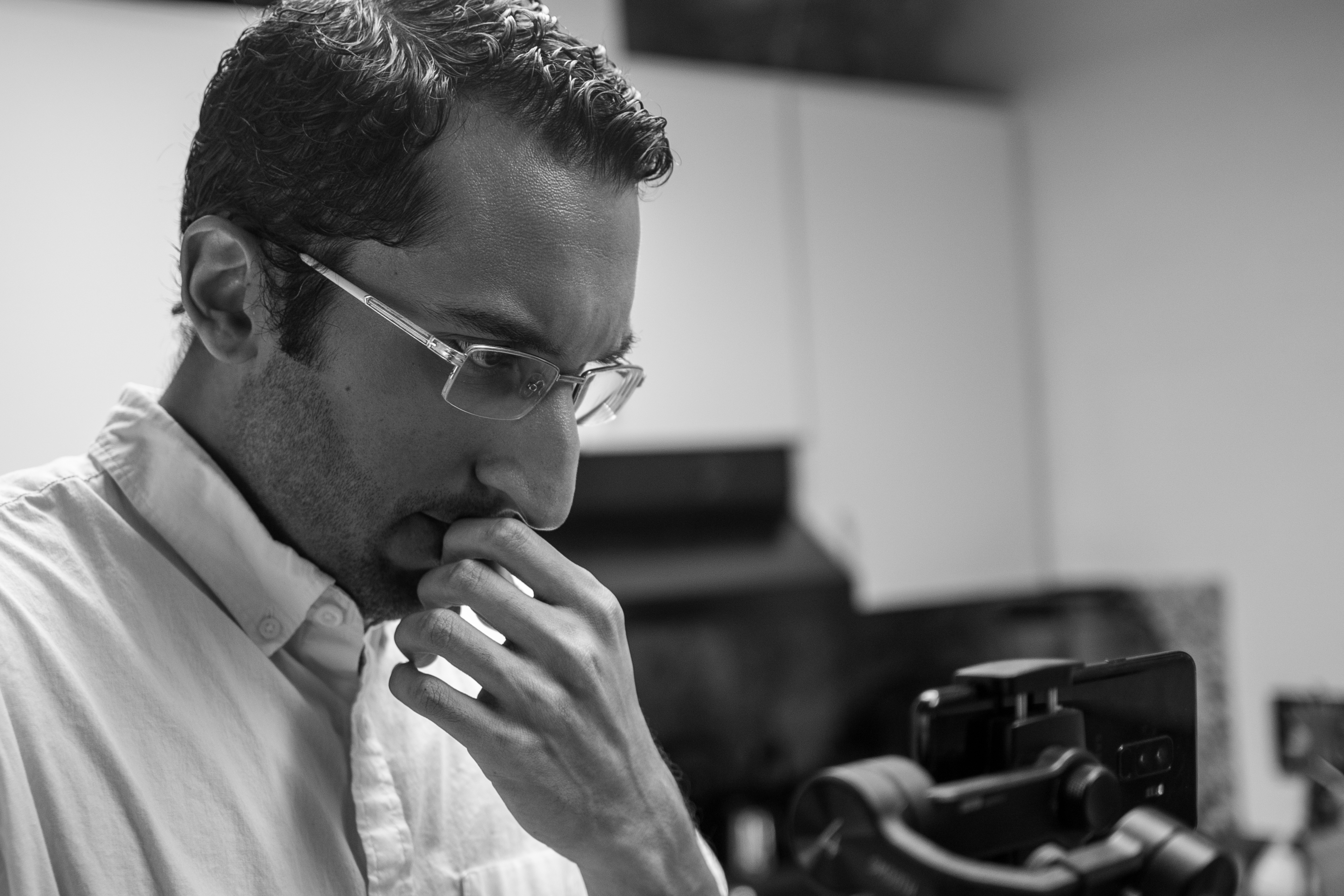Gabriel Rhenals is a passionate Miami-based filmmaker whose first feature, For My Sister, will be screened at FIU on October 9th in GC 140 at 7PM. He’s worked on several award-winning short films and only a few years after our first Five Questions Interview with him, he’s returned to discuss his debut feature-length film. We talk with Gabriel about the process of shooting For My Sister, filming on a phone camera, and his interest in social issues.

First of all, congratulations on your first feature length film! You’ve worked solely on short films in the past, so how did the feature length process differ from your past experience with filmmaking?
In making For My Sister, a major difference was the need for far greater trust and confidence in the cast to make it through a much lengthier production schedule (there was no crew beyond myself!). Luckily, I was able to hire dependable local talent whose work and affability far exceeded my expectations.
And owing to our past two successful short film collaborations, Stephanie Maltez (who plays the lionhearted lead character Evie Sorella), was a stalwart ally throughout the eight-month-long shoot (filming mainly on weekends) and delivered a performance worthy of comparison to her contemporaries in Hollywood.
I’ve heard that For My Sister was filmed entirely on a phone. Can you talk a little bit about what that was like?
I’ve long railed against the stifling and toxic technocratic mindset perpetuated by the mainstream film industry. So, filming my first feature on something like a phone was a foregone conclusion.
The ease and speed with which my Samsung Galaxy S9+ allowed me to work was a dream come true! I was able to double and even triple the amount of set-ups I’d usually get with a DSLR and sound mixer on any given day and focus squarely on performances, staging and camera movement. And for any doubters, the sound and image quality is definitely up to par for a first feature. So, go mobile filmmaking!
After watching some of your short films like Does Free Speech Matter? and 3,000 Too Many, it’s clear that you have an interest in using film as a medium to discuss social issues and bring them to the forefront. Did this interest play a part in the creation of For My Sister?
Absolutely. Any creative endeavor practiced rigorously enough is a political act against a vast and dangerous status quo that gains from collective passivity and mindless consumption. For My Sister is an instrument of social criticism in both form (e.g. micro-budget and local) and content (e.g. the stigma of mental illness). This interest in social concerns is a thread that extends through nearly all of my work.
For My Sister is primarily about mental health but there are some Sci-Fi elements present as well, like the time-traveling nanodrones. What else inspired you when working on the film?
After 17 years a filmmaker, I’ve increasingly begun to take greater inspiration from philosophy (my first major at FIU, by the way!) and artists in other mediums. With this film, I wanted a raw, scientific approach to the entire concept of the film and a consistency of organization that resembled the beautiful intricacy of Baroque-era classical music.
You’ve organized screenings of this film at locations like Miami Dade College and now FIU, is this a film that you believe is important for students to be watching and if so, why?
College-going young people are the prime audience for this film because apart from the youthful zeal and rebelliousness of the filmmaking (can I say that at age 33?), the issue of mental illness and its stigma resonates with a society and healthcare system that is sorely in need of an update. Young people are the key to this and always will be. This film celebrates that. So, yes – please come see my movie, fellow kids!
The Film Studies program, in partnership with NAMI, will be hosting a screening of “For My Sister” on October 9th at GC 140 at 7:00 PM as part of Mental Health Awareness Week. Doors will open at 6:30 PM and following the screening there will be a panel discussion in reference to the film and mental health.
 Valerie Lopez is a film intern who loves listening to herself talk about movies even more than watching them.
Valerie Lopez is a film intern who loves listening to herself talk about movies even more than watching them.
